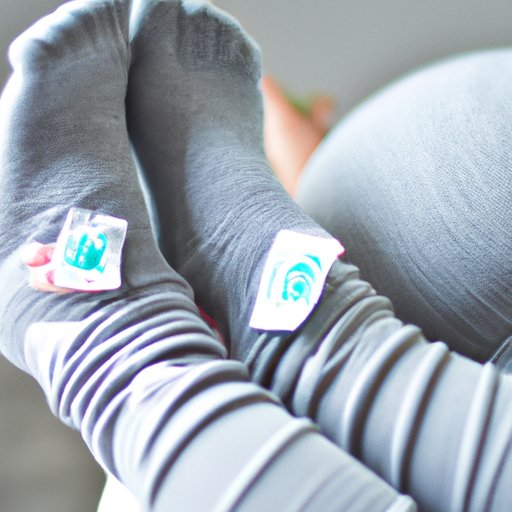Introduction
Feeling your baby kick for the first time is an exciting milestone for any expectant mother. It’s a sign that your baby is growing and developing inside you, and it’s a moment that you’ll remember forever. But beyond the excitement, tracking fetal movement is an important way to monitor your baby’s health and wellbeing. In this article, we’ll explore everything you need to know about feeling your baby kick, including when to expect movements, how to track them, what they mean, and what to do if you’re concerned.
Tracking Fetal Movement
Many expectant mothers wonder when they will feel their baby move for the first time. While it can vary from person to person, most women feel their baby kick for the first time between 16 and 25 weeks of pregnancy. It’s important to remember that every pregnancy is different, and some mothers might feel their baby move earlier or later than others. However, if you reach the 26th week of pregnancy and haven’t felt any movements, it’s important to speak with your doctor.
Once you start feeling your baby move, you should expect to feel regular movements every day. It’s recommended that you track fetal movements as part of your daily routine, which can help you identify any changes or abnormalities. Many experts recommend that you track your baby’s movements at the same time each day, when your baby is most active, such as after a meal. You should aim to feel at least 10 movements within a two-hour period. If you notice any decrease in fetal movements, contact your doctor immediately.
Understanding Your Baby’s Movement
Babies move in a variety of ways during pregnancy, and it’s important to understand what these movements mean. Some movements are gentle flutters or kicks, while others might feel like rolling or squirming. You can keep track of these movements using a fetal kick count chart, which will help you identify regular patterns of movement.
If you’re unsure whether a movement is normal or concerning, it’s always best to speak with your doctor. They can provide expert advice and help you identify any potential problems, such as reduced fetal movements, which can be a sign of fetal distress.
Contributing Factors to Baby Kicks
Several factors can impact when you might feel your baby’s movements. The position of your baby, the stage of pregnancy, and your own movement can all play a role. For example, if your baby is facing your back, you might not feel movements as strongly as you would if your baby is facing forward. Similarly, if you’re moving around a lot or working out, your movements might rock your baby to sleep and reduce their activity.
It’s important to pay attention to factors that might affect fetal movement and to communicate any changes to your doctor. They can help you understand what’s normal for you and your baby and provide guidance if you’re concerned about your baby’s wellbeing.
Comparing Your Pregnancy Experience with Others
It’s natural to compare your pregnancy experience with that of other mothers, but it’s important to remember that every pregnancy is unique. Just because your friend felt her baby move earlier or more frequently doesn’t mean that there’s anything wrong if your experience is different.
Your doctor will provide advice and guidance based on your own experience and medical history, so it’s important to trust your instincts and report any changes or concerns that you have. Speak with your doctor if you notice any changes in fetal movement or if you have any concerns about your baby’s health.
Tips for Getting Regular Kicks and Staying Calm
If you’re having trouble feeling your baby move, there are a few things you can do to encourage movement, such as drinking a cold glass of water or eating a small snack. These actions can stimulate your baby and encourage them to move. However, if you’re concerned about fetal movement, don’t hesitate to contact your doctor right away.
It’s also important to take care of yourself during this time and stay relaxed and calm. Reduce stress and anxiety by taking time for self-care, such as meditation, yoga, or a warm bath. Remember that your baby can sense your emotions and well-being, so taking care of yourself is also important for their health and development.
Conclusion
Feeling your baby move is an exciting and important part of pregnancy. By tracking fetal movements and understanding what they mean, you can ensure that your baby is healthy and developing properly. Remember that every pregnancy is unique, and comparing your experience to others can be misleading. Trust your instincts and communicate any concerns you have with your doctor, and take care of yourself and your baby. Together, you can ensure a healthy and happy pregnancy.
